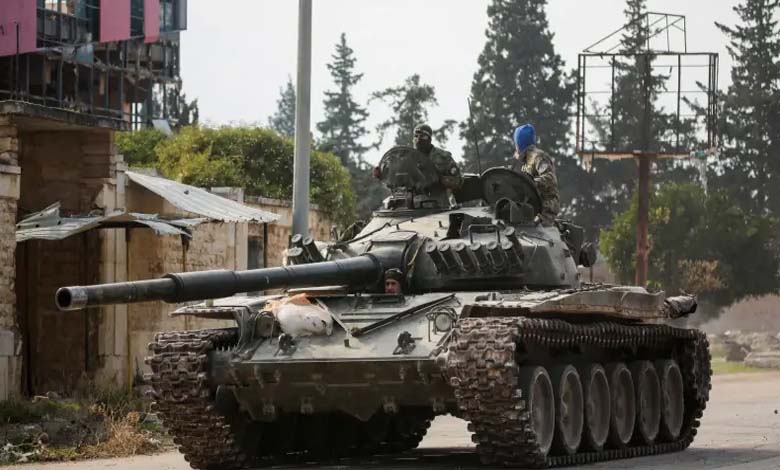Washington Follows the Events in Syria… What about “Hayat Tahrir al-Sham”?

The United States has reached a point of chasing the rapidly unfolding events in Syria, following the unexpected downfall of Bashar al-Assad‘s regime in just a few days.
-
Ukraine and Lebanon: Two Separate Wars That Changed Syria’s Fate
-
Timeline of Events in Syria: How Did Damascus Fall into Rebel Hands?
One of the key questions that now requires an answer is the status of Hayat Tahrir al-Sham, a coalition of several factions, most notably Hayat Fath al-Sham, which emerged from al-Nusra Front, previously linked to Al-Qaeda.
Hayat Tahrir al-Sham has become a challenging question that needs a swift response if it played a role in the downfall of Bashar al-Assad, despite its existence and its leader, Ahmed al-Shara, known as “Abu Mohammed al-Joulani”, being on the U.S. terror list for years.
-
Al-Sadr Calls on Government to Punish Those Intervening in Syria
-
Hama Countryside: Massive Syrian Army Reinforcements and “Mass Fleeing” of Militants
An American official told the Washington Post that U.S. officials are in contact with all groups involved in the fighting in Syria, including the main group that toppled al-Assad, Hayat Tahrir al-Sham, which was once affiliated with Al-Qaeda and remains on the U.S. terror list.
When asked whether the U.S. government might remove the group from the terror list, which would allow for deeper communications and cooperation with it, the official did not rule that out.
The official, who spoke on condition of anonymity, said, “We have to be smart… and very aware and pragmatic about the facts on the ground.”
-
Latest Developments on the Syrian Scene
-
Aleppo Clashes: Syrian Army “Cleanses” Several Areas and Prepares for a Counterattack
A second American official clarified that the U.S. administration is conducting a “real-time assessment” of Hayat Tahrir al-Sham, its level of independence from Turkey, Turkey’s stance on Syrian Kurds, and whether the group should be removed from the list of foreign terrorist organizations.
The U.S. supports Kurdish forces in Syria, having relied on them as a spearhead in the fight against ISIS, which seized large areas of Syria and Iraq from 2014 until its defeat in 2018.
The official spoke to the Washington Post on condition of anonymity to discuss sensitive internal assessments.
-
Meager Salaries and Stark Discrimination: Why Are Syrians Defecting from Iranian Militias?
-
UN Fears the Gaza and Lebanon Wars Spreading to Syria
President Joe Biden, on Sunday, sought to credit his administration for al-Assad‘s fall, saying it was a result of actions taken to bolster allies amid the wars in Ukraine and Gaza.
He added that Russia, Iran, and Hezbollah were unable to support al-Assad‘s regime as they had in the past because they are “weaker today than they were when I took office.”
Biden also mentioned that he would send officials from his administration to the region and offer assistance to Syria’s neighbors, including Jordan, Lebanon, and Iraq.
-
Iran attempts to move thousands of militants to border areas between Syria and Lebanon… Why?
-
The Opening of the Abou al-Zindin Crossing Between Turkey and Syria Depends on Conflicting Interests
He promised humanitarian relief and announced that his administration would coordinate with the United Nations to help the Syrians build an independent and sovereign state.
Years ago, Hayat Tahrir al-Sham was designated a foreign terrorist organization by the U.S., Turkey, the U.N., and several other Western nations.
In 2018, the U.S. offered a reward of $10 million for the capture of its leader, Abu Mohammed al-Joulani (Ahmed al-Shara), according to CNN.












